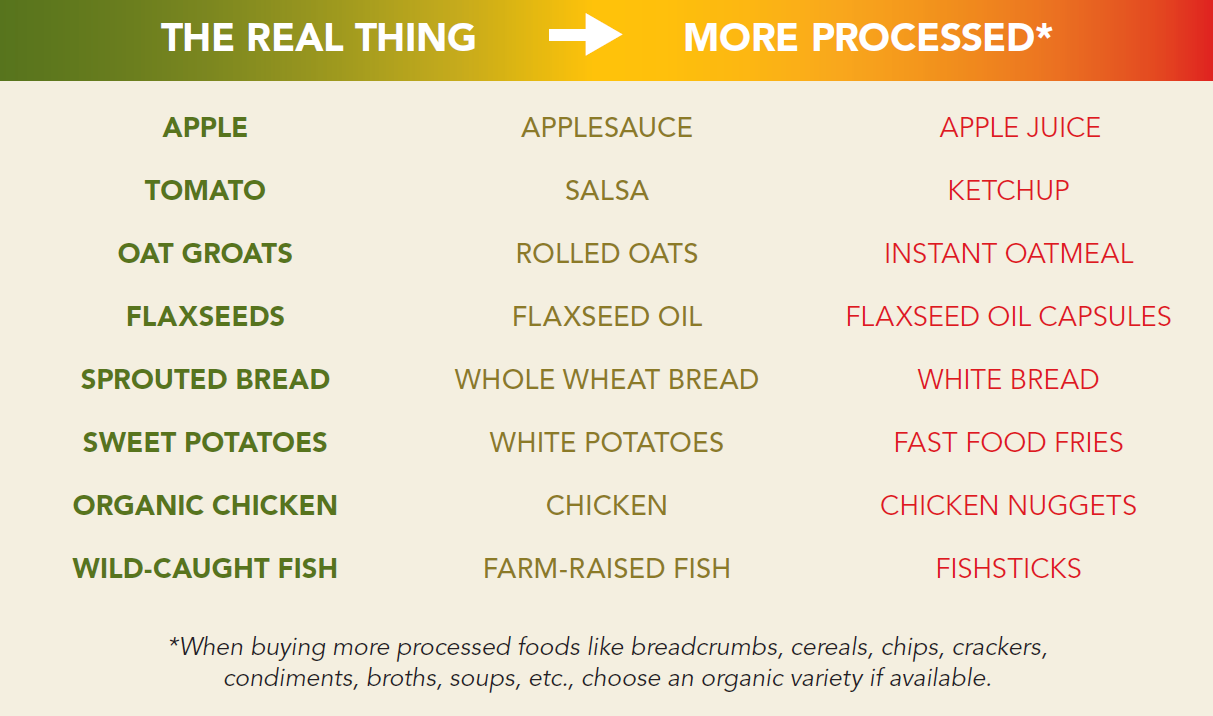
Plant- Based. The New Processed Food?
October 22, 2019
On Target Weaning Baby Led Feeding
December 13, 2019Plant-Based Burgers
The Impossible Burger and Beyond Meat Burger are the newest faux meat burgers to hit grocery stores and restaurants. Both are vegan and contain animal products or by-products and are designed to mimic the taste and texture of real beef. They also are less than 300 calories, contain about 20 grams of protein, and have zero cholesterol.
You can find the Impossible burger in places like Burger King, Red Robin, White Castle, Umami Burger, Qdoba, and Little Caesars. You can find Beyond Meat burgers at TGI Fridays, Del Taco, and Carls Jr. Beyond burger also makes plant-based bratwurst sausage, Italian sausage and meat crumbles.
While all of this sounds healthy from the outside, it is far from healthy on the inside. What consumers don’t realize is that ingredients are number one indicator of quality and if we can’t recognize the ingredients we are consuming—they are not real food. Plant-based may in fact be the new processed food. At On Target Living, our number one food rule is, “If you can’t read it, you shouldn’t eat it.”
Here are the ingredients you can find in these popular burgers.
The Impossible Burger
Water, Soy Protein Concentrate, Coconut Oil, Sunflower Oil, Natural Flavors, 2% or less of: Potato Protein, Methylcellulose, Yeast Extract, Cultured Dextrose, Food Starch Modified, Soy Leghemoglobin, Salt, Soy Protein Isolate, Mixed Tocopherols (Vitamin E), Zinc Gluconate, Thiamine Hydrochloride (Vitamin B1), Sodium Ascorbate (Vitamin C), Niacin, Pyridoxine Hydrochloride (Vitamin B6), Riboflavin (Vitamin B2), Vitamin B12.
The Beyond Meat Burger
Water, Pea Protein Isolate, Expeller-Pressed Canola Oil, Refined Coconut Oil, Contains 2% or less of the following: Cellulose from Bamboo, Methylcellulose, Potato Starch, Natural Flavor, Maltodextrin, Yeast Extract, Salt, Sunflower Oil, Vegetable Glycerin, Dried Yeast, Gum Arabic, Citrus Extract (to protect quality), Ascorbic Acid (to maintain color), Beet Juice Extract (for color), Acetic Acid, Succinic Acid, Modified Food Starch, Annatto (for color).
In terms of ingredients, these two burgers are pretty similar besides the fact that the Impossible burger uses soy protein and Beyond Meat uses pea protein as the main protein source. To mimic the red color and bleeding effect of beef, the Impossible burger uses soy leghemoglobin and the Beyond meat burger uses beet extract.
Both of these plant-based companies have created a burger in a lab by scientists. Both foods are processed foods, hence the long list of ingredients. Want to know the definition of processed food?
As a Registered Dietitian, I am here to tell you that 300 calories, 20 grams of protein, and zero cholesterol tells you nothing about the quality of a product or what it will do in your body. In fact, cholesterol is our healing nutrient, helps to balance hormones, and is far from a bad thing. We also know that calories are not created equal and too much protein makes the body very acidic leading to inflammation and poor health.
Be Wary of Science Based Articles
While there may be studies out there that claim plant-based meats are more sustainable for the planet, there are an equal amount of studies that say consuming meat has little to no effect on our environmental impact compared to overpopulation, pollution, food waste, ocean acidification, and genetic modification. One study that modeled what would happen if we eliminated all animal products from our food system showed that greenhouse gas emissions would only go down by 2.6% while overall calorie intake and nutrient deficiencies would dramatically go up.
Bottom line is that studies can be skewed to give us any result. Science is “the pursuit of knowledge.” Unfortunately and fortunately, science is always changing and doesn’t mean it’s right. Think about trans fats. The FDA claimed that trans fats were safe for human consumption and many manufactures started to replace saturated fats in their products with trans fats. Now, trans fats are banned from our entire food system because of the harmful and deadly affects they have on our health. When reading a study, keep in mind who funds the study. If the Soyfood Council or Soybean Board funds a study claiming soy and soy-based items are healthy, we know why.
Conclusion
To encourage people to eat no meat is just not practical considering 95% of our population eats meat. What we need to do is eat more plants, less meat and the meat we do eat should be better. You can read more about the plant-based movement here.
The Golden Food Rule
We are all looking for a simple, one concept golden rule to make the right food choices. Well, at On Target Living we teach just that—and it’s called THE SOURCE. As long as the foods we are eating are as close to THE SOURCE as possible, meaning they are in their natural state, we can’t go wrong. Food closest to THE SOURCE will be the healthiest, least processed, most affordable and flavorful way to eat.
Nothing is off limits when it’s from the source. This is a concept that will last no matter what new diet craze hits the market and will never go out of style. It’s how we define whether a food is healthy or not. There is no need to be confused by the new food trends or diets when you focus on THE SOURCE concept. THE SOURCE will always trump plant-based.
So, if someone asks you whether chocolate is healthy or not? Your answer should be, “depends on THE SOURCE.” Is it the raw unprocessed form of dark chocolate known as cacao, which is loaded in calming magnesium and other healthful properties or is it a processed candy bar which contains added sugar, processed dairy and no nutritional value?







